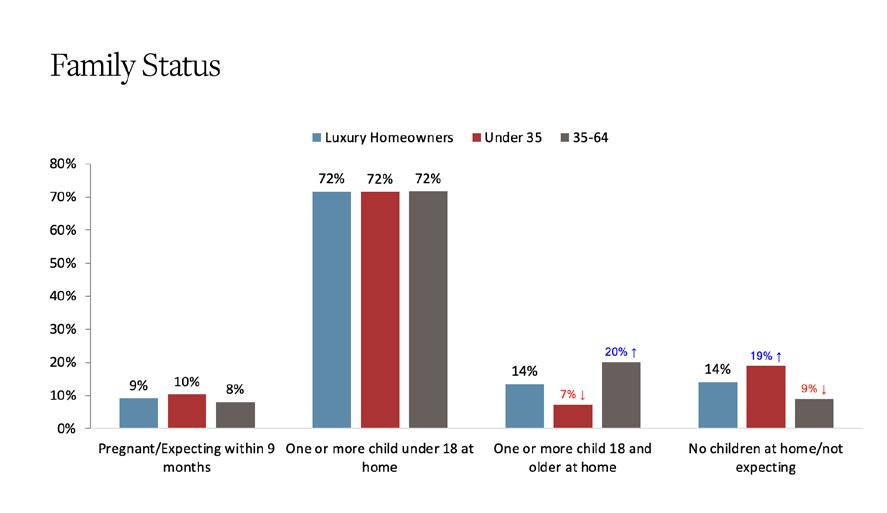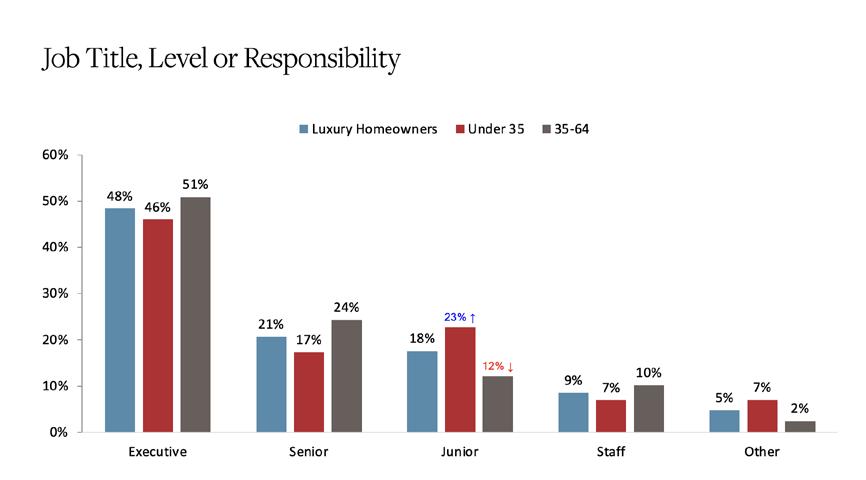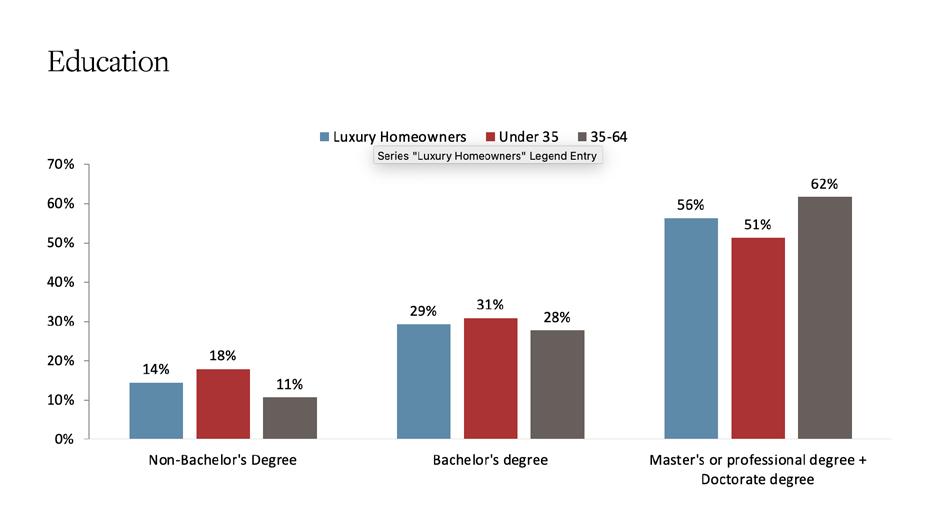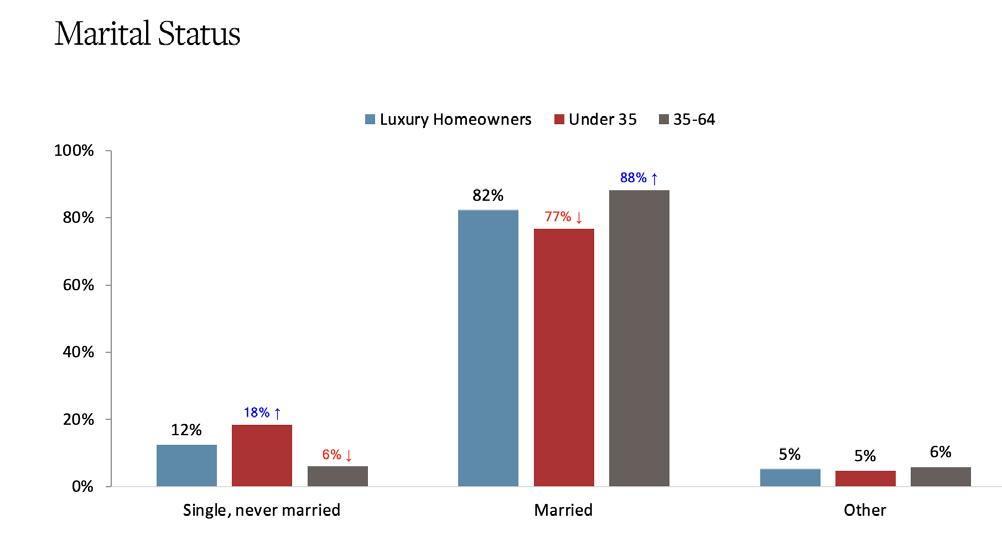
2 minute read
DEMOGRAPHIC EVOLUTION: A New Era of Luxury Homeowners
The world of luxury homeowners is evolving, with new generations entering the market and bringing their unique preferences along with them. As the dynamics of luxury home ownership change, understanding these distinctions becomes crucial for those in the industry to continue catering to the modern luxury owner.
One of the key findings in Luxury Portfolio’s study is a significant shift in gender distribution among younger luxury homeowners.
While men make up the majority of owners aged 35-64 (59%), women account for 54% of those under 35 years old. This indicates a growing female presence in the luxury real estate market.
More women are climbing the corporate ladder and achieving financial success in their own right, with an equal percentage of men and women in corporate leadership (48%) reporting that they hold executive leadership positions. This is reflected in the changing demographics of luxury home owners.
In terms of education, younger luxury homeowners tend to hold lower levels of higher education degrees compared to their middle-aged counterparts, but they still boast impressive academic credentials.
Among luxury owners under 35 years old, 51% have a master’s degree or higher, while this figure stands at 62% for those aged 35-64. Overall, the younger generation remains a highly educated and ambitious group.
Another notable difference between the age groups lies in job titles and varying levels of responsibility.
Younger luxury homeowners tend to hold junior (23%) and executive (46%) positions, while middle-aged owners lean more towards senior (24%) and executive roles (51%). This suggests that younger individuals are making significant strides early in their careers, acquiring luxury homes at a faster pace than previous generations. This follows a broader trend among the affluent that the ‘first luxury experience’ is happening earlier in life now for today’s young people compared to generations past.
Luxury experiences were reserved for special occasions and accomplishments (such as a Rolex watch for 20 years of service at a company). Millennial and Gen Z consumers experience luxury almost daily (where they live, the vacations they take, the cars they ride in).
The study also highlights differences in relationship status between the two age groups.
A significant 18% of luxury homeowners under 35 are single, compared to just 6% of those aged 35-64. Moreover, 77% of younger owners are married, which is 11 points lower than the middle-aged group. These results point towards a shift in social tendencies, as younger generations prioritize both individual success and financial security before settling down.


Luxury brands outside the real estate sector are also taking note of these demographic shifts, tailoring their offerings to cater to a younger, affluent clientele. Brands such as Tiffany & Co., for instance, have revamped their marketing strategies to appeal to the next generation of luxury consumers.
Tiffany & Co.’s 2021 “Not Your Mother’s Tiffany” campaign repositions the brand to appeal to younger, affluent clients. Featuring celebrities such as A$AP Ferg, the campaign highlights its modern collections. To engage millennials and Gen Z, Tiffany uses digital platforms such as Instagram and offers virtual consultations. Additionally, the brand focuses on sustainability and social responsibility, sharing traceability information for its diamonds. By embracing these strategies, Tiffany & Co. aims to connect with the next generation of luxury consumers.
In conclusion, the landscape of luxury home ownership is transforming, as younger generations rise to prominence in the market. Understanding these changes will be paramount for industry professionals seeking to adapt and succeed in this shifting environment.
Key Takeaways
An increasing number of women own luxury homes
Younger luxury homeowners tend to be well-educated

Luxury homes are purchased earlier in careers by young individuals
Many young luxury homeowners are single or unmarried
Major companies target young, affluent buyers for luxury goods and services











